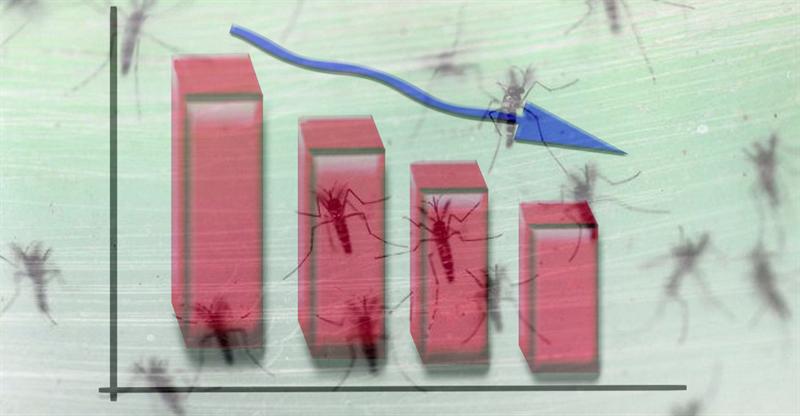Surveillance continues for resulting complications—particularly the paralytic type illness, Guillain Barre Syndrome.
 The Ministry of Health and Wellness has noted a decreasing trend in the number of cases of Zika Virus Disease.
The Ministry of Health and Wellness has noted a decreasing trend in the number of cases of Zika Virus Disease.
The count reached a peak in June 2016 and has been decreasing ever since, however evidence of new infections continue.
The Ministry of Health cautions that although the number of cases of zika is decreasing, the public should remain alert for complications resulting from the disease, particularly the paralytic type illness, Guillain Barre Syndrome (GBS), as well as microcephaly and other abnormalities in babies born to zika infected mothers.
This year, four GBS cases were admitted and treated. The patients were all male, aged 38 to 56. Some of the patients had prior symptoms suggestive of Zika Virus Disease. The Ministry is also monitoring the cases of 39 women who were confirmed to have zika during pregnancy. Five of these women have delivered. Microcephaly or other abnormalities have not been noted in any of the babies. Close monitoring of the remaining expectant mothers continues.
Zika is generally a mild viral disease caused by the bite of an infected mosquito. Only one out of every four persons affected with the disease may develop symptoms such as fever, skin rash, joint or muscle pain, and red eyes. Although the mosquito is the main agent responsible for spreading the disease, the virus can survive for many weeks in the semen of infected males, making sexual transmission of zika possible.
The measures to be taken to prevent the spread of zika are the same measures taken to decrease the spread of other mosquito-borne diseases such as dengue fever and chikungunya. They include wearing long-sleeved clothing and long pants; using mosquito repellents on exposed limbs and on clothing; utilizing bed nets and installing window and door screens where possible; getting rid of all breeding sites of mosquitoes such as old tyres, plastics and other refuse around the home; using soil instead of water in flower vases; ensuring that drums are properly covered and water tanks are properly sealed; and performing weekly inspections of your home and surroundings, workplaces and schools to ensure that there are no breeding sites for the Aedes aegypti mosquito.
The Ministry of Health continues fogging operations and mosquito surveillance, as well as health promotion activities to decrease the impact of Zika and other mosquito borne diseases.